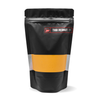Named for a fire access road used for endurance training high in the California hills, we created FireRoad to help you reach your peak. Based on the belief that eating the right combination of nutrient-dense plant-based foods is the best path to sustained performance, FireRoad takes the guesswork out of smart eating. Whether you are an elite athlete or just want to unlock your full potential, getting the right balance of macronutrients (protein, carbohydrates and fat) and micronutrients (vitamins and minerals) is too important to leave to chance.
Using nutritional science, FireRoad expertly builds its foods ingredient-by- ingredient to deliver fantastic tasting meals with robust nutritional profiles. Flash frozen to lock in freshness, FireRoad uses real food to deliver full spectrum proteins, branched-chain amino acids, antioxidants, probiotics, electrolytes, fiber, phytonutrients, Omega-3s, anti-inflammatory and immune boosting properties, among other functions.
We sweat the details of smart plant- based eating, so you can focus on blazing your way to the top.

David Brown
FireRoad Co-Founder

Brendan Brazier
FireRoad Co-Founder
Vega Co-Founder
The Science (Badges)
Each FireRoad meal contains Full Spectrum Protein along with other functional ingredients.
Our badges (shown below) indicate what may be included in a particular meal.
Full spectrum protein
Contains diverse, multi—sourced plant proteins that together deliver a broad spectrum of amino acids. Along with fats and carbohydrates, protein is critical for muscle growth and repair, digestion, metabolism and a strong immune system.
BCAAs
Contains branched—chain amino acids (BCAAs): isoleucine, leucine and valine. As with all essential amino acids, we need to source BCAAs from diet. The body cannot manufacture them. Vital for athletes, BCAAs play an important role in protein synthesis and muscle metabolism. Studies suggest that BCAAs may help to improve recovery time, muscular growth, and physical performance.
Read MorePhytonutrients
Contains plant—derived compounds that may have a beneficial impact on health, such as improved immune function, protection from aging, and combating inflammation.
Probiotics
Contains fermented foods or other ingredients that are natural sources of probiotic bacteria—the “good bugs” that may contribute to gut health.
Anti-inflammatory
Contains ingredients that may combat inflammation, a natural biological response to stress. Inflammation can lower immunity, increase susceptibility to chronic ailments, and impair the recovery process after strenuous workouts. Some of our favorite anti—inflammatory ingredients include leafy greens, soybeans, broccoli, ginger, and turmeric.
Read MoreElectrolytes
Contains electrolytes—minerals such as sodium, potassium and chloride—that keep our bodies hydrated and our muscles functioning at peak performance. Electrolytes are easily lost through sweat; without them, muscles can become susceptible to fatigue and cramping.
Omega-3s
Contains a special group of fatty acids that, like essential amino acids, need to be supplied by diet—human bodies don’t produce them on their own. Omega—3s play an important role in combating inflammation associated with muscle breakdown and repair after a workout. Meals with the Omega—3 label contain ingredients with alpha-linolenic acid (ALA), a type of Omega—3.
Read MoreAntioxidants
Contains antioxidants that are naturally occurring plant compounds that may help to combat oxidative stress, a cellular process that can speed aging. Oxidative stress occurs when free radicals—a particular type of oxygen-containing molecule—accumulate in our cells. Since athletes take in more oxygen than the average person, studies suggest that they are particularly susceptible to oxidative stress and its debilitating effects. Our antioxidant—rich meals emphasize nutrients and ingredients that may help to offset free radical production.
Read MoreFiber
Contains dietary fiber, which is associated with digestive function, cardiovascular health, and maintenance of optimal blood lipids. Dietary fiber can contribute to a sense of fullness after meals, helping to prevent overeating.
Immune Boosting
Contains foods that are excellent sources of Vitamin C, Zinc, probiotics, and other nutrients that are associated with strong immune function.
Performance Vitamins + Minerals
Contains micronutrients are key for energy metabolism, oxygen transfer and tissue
repair—such as the B Vitamins that help turn carbohydrates into energy and process fat and protein; Vitamin D (good for bone health when paired with calcium); iron (carries oxygen to muscles); calcium (good for bones and muscle contraction) and/or magnesium (that plays a role in nerve and muscle function).
The Science (Protein 101)
Full spectrum protein is the cornerstone of every FireRoad meal. Proteins are made up of smaller “building blocks” called amino acids. Adults need 20 different types of amino acids to grow and function properly. Eleven “non-essential” amino acids can be synthesized from the body, but the remaining 9 “essential” amino acids must be sourced from food. Foods that contain all essential amino acids in adequate amounts are considered “complete proteins.” If amino acids are not present in the right balance, the body may break down its own amino acids to obtain the missing proteins, leading to muscle loss. Adequate consumption of high-quality protein is thus critical for peak health and performance. FireRoad carefully combines complementary proteins to deliver complete proteins in each dish.
Essential
Leucine
One of three branched-chain amino acids; helps with protein synthesis; muscle repair/growth; blood sugar levels; energy.
Threonine
Aids in production of antibodies to strengthen immune defenses; creates collagen and muscle tissue; speeds recovery; helps fat metabolism.
Isoleucine
One of three branched-chain amino acids; concentrated in muscle tissue; plays a role in energy production and muscle recoveryafter tough physical exertion.
Histidine
Is a precursor to histamine, a neurotransmitter vital to immune response, digestion, sexual function + sleep-wake cycles; nerve cell protection.
Lysine
One of three branched-chain amino acids; aids in immune function + muscle formation; may improve blood sugar levels; stimulates wound healing + produces growth hormones.
Methionine
Aids in metabolism + detoxification; required for growth + tissue repair; absorption/bioavailability of selenium + zinc; plays a role in the body’s synthesis of creatine, which can enhance strength.
Valine
One of three branched-chain amino acids; promotes muscle growth, repairs tissues + delivers energy.
L-Phenylalanine
Precursor for the neurotransmitters tyrosine, dopamine, epinephrine and norepinephrine; helps with mood + cognitive function.
Tryptophan
Aids with proper nitrogen balance; a precursor to the neurotransmitters serotonin + melatonin, which play important roles in regulating appetite, sleep and mood.
Non-Essential
Alanine
Helps to maintain glucose levels needed for energy; aids removal of toxins released during exercise; plays a role in regulation of blood cholesterol.
Arginine
Helps blood vessels; produces nitric oxide, which enhances blood flow; encourages healthy muscle growth; assists with creation of creatine, which can enhance strength.
Asparagine
Helps the nervous system maintain equilibrium; serves as a detoxifier + regulates metabolism.
Aspartic Acid
Improves metabolism; plays an important role in gluconeogenesis, the process by which the body generates glucose for energy.
Cysteine
Acts as antioxidant; forms strong connective tissues; responsible for glutathione, a vital liver detoxifier.
Glutamic acid
Stored in muscle tissue; important for immune and digestive systems; energy; stimulates proper brain function + memory.
Glutamine
Transports nitrogen to muscle cells + builds muscle mass; aids with production of glutathione for liver detoxification; stimulates proper brain function; digestion + immune function.
Glycine
Mediates glucose for energy; cell growth + function; digestive health; helps skin retain elasticity; assists with creation of creatine, which can enhance strength.
Proline
Keeps muscles + joints pliable; aids with skin regeneration.
Serine
Essential to brain function; muscle formation + immune health; assists with absorption of creatine, which can enhance strength.
Tyrosine
Precursor for several neurotransmitters that aid cognitive function + mood; hormone production; melanin production.
The Science (Micronutrients)
Micronutrients, which include vitamins and minerals, are tiny, nutritional powerhouses that are essential for healthy bodies and peak performance. FireRoad meals can contain one or more micronutrient as indicated.
Vitamins
Vitamin A
Vitamin A, which includes retinol and retinoic acid, plays an important role in maintaining healthy immune function. Immunity—including the body’s ability to fight off infection—can become temporarily impaired after intense physical exertion. Vitamin A also plays a crucial role in healthy vision, and it may help to prevent iron-deficiency anemia. Good, plant-based sources of Vitamin A include orange and dark green vegetables, beans, corn, tofu, apricots, mango + papaya.
Read MoreVitamin B1 (Thiamine)
Vitamin B1, or thiamine, aids in the body’s breakdown of carbohydrates and protein, which in turn creates and maintains energy. Thiamine is plentiful in plant-based foods. Good sources include legumes, grains (especially rice and wheat), nuts, seeds, spinach, oranges + blackstrap molasses.
Read MoreVitamin B2 (Riboflavin)
Vitamin B2, or riboflavin, is part of two major coenzymes that regulate energy production in the body. It plays a role in numerous critical metabolic pathways, and aids in healthy red blood cell production, which is key to keeping the body oxygenated, energized, and active. Sources of riboflavin include legumes, oats, quinoa, brown rice, nuts, mushrooms, sunflower seeds + nutritional yeast.
Read MoreVitamin B3 (Niacin)
Vitamin B3, also known as niacin, supports athletic performance by aiding in the metabolism of macronutrients, including protein and carbohydrates. Niacin also plays a role in digestive health and in maintaining healthy skin. Plant-based sources of niacin include whole grain bread, cereals, sunflower and pumpkin seeds, tofu and soy milk, spinach + potatoes.
Read MoreVitamin B5 (Pantothenic Acid)
Vitamin B5, or pantothenic acid, is a precursor for Coenzyme A, which is essential for many of the body’s most vital biological functions. Some research suggests that Vitamin B5 might also aid in wound healing and skin integrity. Good sources of Vitamin B5 include sweet potatoes, shiitake mushrooms, broccoli, whole grain bread, sunflower seeds + avocado.
Read MoreVitamin B6 (Pyridoxine)
Vitamin B6 plays a crucial role in protein metabolism. It is a nutrient of interest for athlete’s who often have increased protein needs. Vitamin B6 may also play a role in maintaining cardiovascular health. Sources of B6 include chickpeas, bananas, brown rice, bulgur wheat, winter squash, nuts + raisins.
Read MoreVitamin B7 (Biotin)
Biotin is an essential B-vitamin that helps the body to metabolize glucose, proteins, fats and carbohydrates. Biotin may also play an important role in gene regulation. Good, plant-based sources of biotin include nutritional yeast, sunflower seeds, sweet potato, avocado, oatmeal, bananas + cauliflower.
Read MoreVitamin B9 (Folate)
Folate works in tandem with Vitamin B12 to help produce oxygen-carrying red blood cells. Inadequate folate intake is associated with anemia, as well as an increased risk of numerous chronic diseases. Folate is plentiful in plant-based foods, especially leafy greens, crucifers (like broccoli and brussel sprouts), legumes, asparagus, wheat germ, oranges, bread + green peas.
Read MoreVitamin B12 (Cobalamin)
Vitamin B12 is essential for a healthy nervous system, aiding in coordination and smooth muscle movement. As with other B-vitamins, B12 plays a role in the production of red blood cells and conversion to usable energy. Unlike other B-vitamins, B12 is not plentiful in plant-based foods. Sources include nutritional yeast, fortified non-dairy milk, and certain fermented foods. It is important for plant-based eaters to supplement this vitamin in their diets.
Read MoreVitamin C
Vitamin C is a powerful antioxidant, well known for its role in helping to support the immune system. Vitamin C also plays a role in protein metabolism, wound healing, and healthy function of the nervous system. It aids significantly in iron absorption, and it’s advisable to eat iron-rich foods with a good source of Vitamin C. Foods rich in Vitamin C include citrus, strawberries, red bell peppers, kiwi, broccoli, and brussel sprouts, among many other fruits and vegetables.
Read MoreVitamin D
Vitamin D allows the body to absorb calcium more efficiently and may be a key factor for proper bone formation (and regeneration) and smooth muscle contractions. Plant-based sources of Vitamin D are limited, but they include nutritional yeast, some mushrooms, sunlight exposure, and fortified foods (such as fortified non-dairy milks).
Read MoreVitamin E
Vitamin E is a powerful antioxidant, which means that it may play a role in delaying cellular reactions that contribute to aging. Vitamin E also helps to maintain a healthy immune system, and may aid in healthy vision, too. Sources of Vitamin E include vegetable oils, nuts and seeds, spinach, broccoli, avocado + chard.
Read MoreVitamin K
Vitamin K is known primarily for the role that it plays in blood clotting, though it also plays an important role in maintaining bone health and cardiovascular health. Vitamin K is abundant in dark leafy greens, vegetable oils, cashews + pine nuts.
Minerals
Calcium (Ca)
Calcium is best known for maintaining bone strength and repair, but the mineral also plays a crucial role in cell signaling—and, by extension—muscle contraction. Calcium absorption is facilitated by Vitamin D, so it’s important not only to eat calcium rich foods, but also to supplement Vitamin D if needed, or to get healthful exposure to sun. Good, plant-based sources of calcium include fortified non-dairy milks, leafy greens, beans, shelled sesame seeds, tofu + fortified orange juice.
Read MoreIodine (I)
Iodine is integral to thyroid hormone production, which in turn supports a healthy metabolism and energy levels. A great deal of iodine can be lost in sweat, so while only small amounts of iodine are needed in the diet, it’s especially important for athletes to keep this nutrient in mind. Sources of iodine include seaweed, iodized salt, prunes, lima beans + navy beans.
Read MoreIron (Fe)
Iron is an integral part of hemoglobin, the molecule that helps to transport oxygen throughout the body and thus maintain energy levels. In addition, iron plays an important role in growth, development, some hormone production, and immune function. Plant sources of iron include leafy greens, tofu, tempeh, legumes, bulgur wheat, tahini + blackstrap molasses.
Read MoreMagnesium (Mg)
Magnesium takes part in energy production, protein metabolism, and it assists in the maintenance of normal muscle function. Good magnesium status has also been associated with decreased stress and reduction of anxiety, as well as digestive and cardiovascular health. Sources of magnesium include nuts, legumes, soy milk, oatmeal, bananas, raisins, leafy greens + breakfast cereals.
Read MorePhosphorus (P)
Phosphorus plays a role in how the body uses carbohydrates, protein and fats, and it works with calcium in maintaining the health of bones and teeth. Phosphorus may also aid in muscle contraction, and proper phosphorus levels are crucial for kidney health. Dietary sources of phosphorus include nuts, legumes, and fortified grain and whole grain products.
Read MorePotassium (K)
Potassium, an electrolyte, helps the body maintain fluid balance and hydration, both of which are essential for muscle contraction and efficient movement. As with other electrolytes, potassium is lost in sweat, so repletion through food is important. Plant-based sources of potassium include bananas, potatoes, oranges, kiwis, kidney beans, soy beans + spinach.
Read MoreSelenium (Se)
An essential trace mineral and antioxidant, selenium may help to combat cellular damage associated with aging. Good selenium status is associated with a reduced risk of certain chronic diseases, and selenium also plays an important role in a healthily functioning thyroid gland. Sources of selenium include Brazil nuts, brown rice, sunflower seeds, lentils, cashews, bananas + peas.
Read MoreSodium (Na)
Sodium, along with calcium, potassium, chloride, phosphate and magnesium, is an electrolyte. Electrolytes help to maintain proper fluid balance and hydration status, and they also play a key role in normal nerve and muscle function. Because sodium is abundant in processed foods, many Americans consume in excess, which can lead to hypertension. Low sodium, or hyponatremia, is also dangerous, and athletes are at a greater risk because of electrolyte losses through sweat. Consuming sodium in moderation is important. Sodium can be sourced through all types of salt (including table salt, sea salt, and Himalayan salt), soy sauce or tamari, miso, and it occurs naturally and notably in certain vegetables (like celery and Swiss chard).
Read MoreZinc (Zn)
Zinc is an essential mineral that aids in growth, development, and particularly in healthy immune function. Zinc is also associated with skin repair and wound healing, and it’s a part of many structural proteins in the body. Zinc isn’t abundant in plant foods, but good sources include nuts, chickpeas, baked beans, oatmeal + peas.
Read MoreFireRoad Meals
Here's how it works: Our take on the classic Korean bulgogi (“fire meat,” literally) -- supercharged with a powerful + diverse blend of plant-proteins and vital nutrients. Ginger-soy glazed tempeh, Adzuki beans, seeds and grains deliver a whopping 27 grams of complete full-spectrum protein, including muscle-repairing BCAAs. Crisp vegetables add flavor and phytochemicals for enhanced recovery. We toss in kimchi for a little heat and to harness the probiotic power of fermented foods.
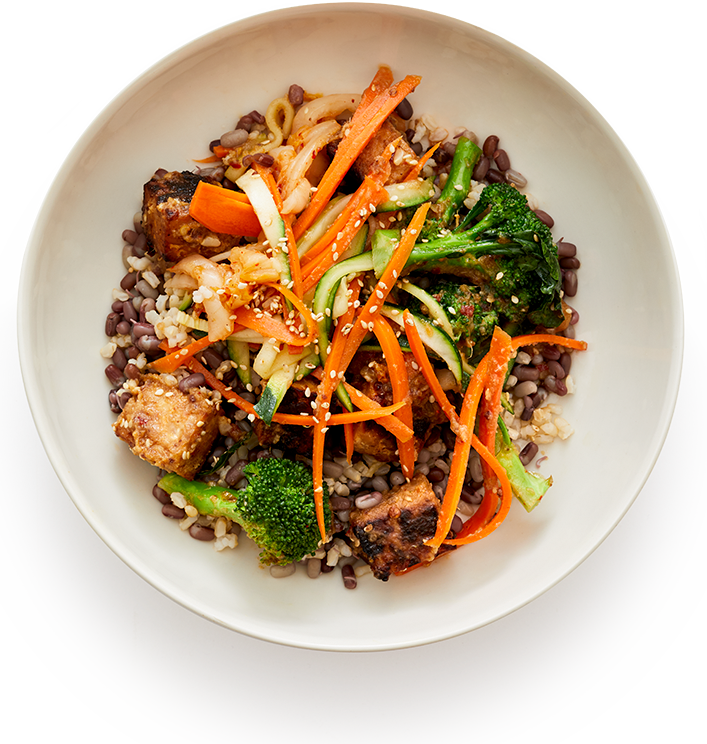
BCAAs:
Branched-chain amino acids play an important role in muscle growth and repair. We combine protein-rich fermented tempeh, nutrient-packed Adzuki beans and brown rice to deliver a healthy helping of isoleucine, leucine and valine, which may help to enhance immunity and speed recovery time.
Full Spectrum Protein:
Fermented tempeh, adzuki beans, seeds and grains keep you running with 27 grams of proteins and the amino acids you need to perform at your peak.
Gut Health:
Fermented Kimchi and tempeh are a natural source of food-based probiotics. These beneficial bacteria may help to boost digestive health and immunity, both of which can become compromised after a hard workout.
Antioxidants:
A colorful blend of spinach, carrots, and broccoli offers a dose of phytochemicals, powerful plant compounds that may play a role in immunity and in combating inflammation. Grapeseed oil offers Vitamin E, which may also combat free radicals that can cause post-workout cellular damage.
Electrolytes:
Greens, root vegetables and seeds provide a full range of key electrolytes (potassium, sodium, magnesium, calcium, and phosphate) to help recharge after a strenuous workout.
Fiber:
This flavorful dish is packed with dietary fiber – Adzuki beans, a rainbow of vegetables and grains – that may keep you satiated longer and your digestive system and blood sugars in check.
FireRoad Advantage
At FireRoad, our goal is to make every ingredient count. The result? Gram for gram, our nutrient dense meals can deliver more of what matters than conventional versions. Take, for instance, how our Hearty Plant-based Penne Ragu compares with a traditional Ragu* -- substantially more protein, fiber and iron with less cholesterol and saturated fats.
FireRoad
Nutrition Facts
servings per container
Serving size (425g)
Amount per serving Calories
510
- %Daily Value
- Total Fat 14g 18%
- Saturated Fat 1.5g 8%
- Trans Fat 0g
- Cholesterol 0mg 0%
- Sodium 450mg 20%
- Total Carbohydrate 73g 27%
- Dietary Fiber 17g 61%
- Total Sugars 14g
- Added Sugars 0g 0%
- Protein 33g 44%
- Vitamin D 0 mcg 0%
- Calcium 170 mg 15%
- Iron 10.9 mg 60%
*Percent Daily Value (DV) is a guide to the nutrients in one serving of food. DVs are based on a 2,000-calorie diet for healthy adults. Please see our disclaimer for further information on nutritional information.
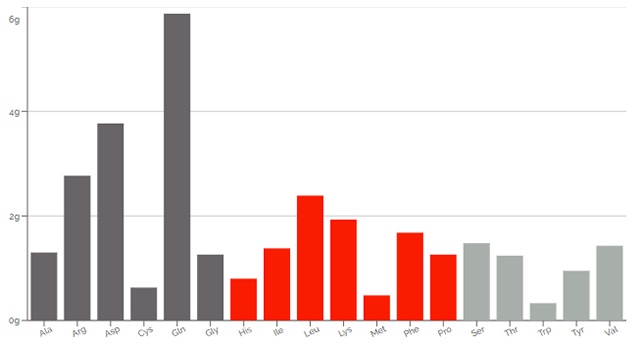
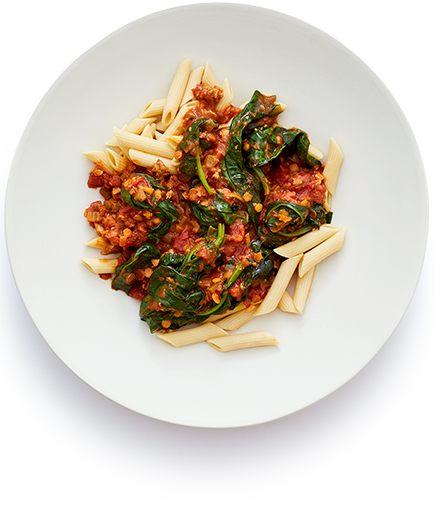
Conventional
Nutrition Facts
servings per container
Serving size (425g)
Amount per serving Calories
540
- %Daily Value
- Total Fat 17g 22%
- Saturated Fat 4.5g 23%
- Trans Fat 0g
- Cholesterol 20mg 7%
- Sodium 650mg 28%
- Total Carbohydrate 80g 29%
- Dietary Fiber 8g 29%
- Total Sugars 11g
- Added Sugars 0g 0%
- Protein 18g 21%
- Vitamin D 0.2 mcg 2%
- Calcium 140 mg 10%
- Iron 5.8 mg 30%
*Percent Daily Value (DV) is a guide to the nutrients in one serving of food. DVs are based on a 2,000-calorie diet for healthy adults. Please see our disclaimer for further information on nutritional information.

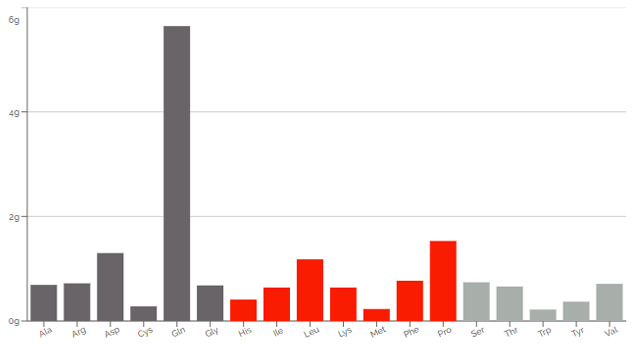
*Nutritional values for traditional ragu are based on a popular, classic sausage ragu recipe using meat and pasta portions equivalent to the FireRoad version. Results may or may not be typical of all FireRoad meals and will vary depending on actual comparison between meals.








